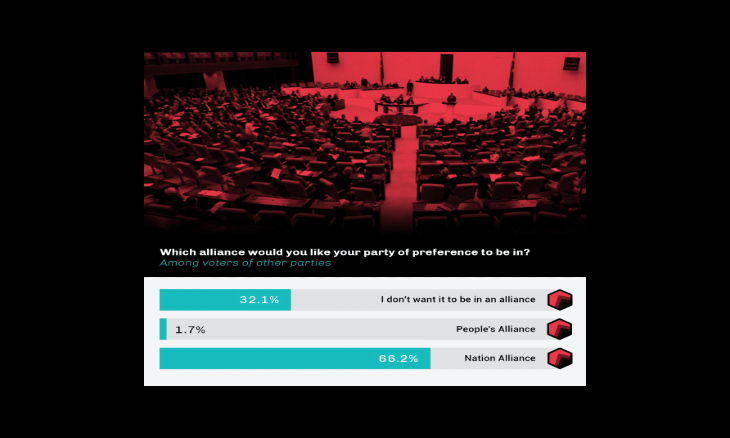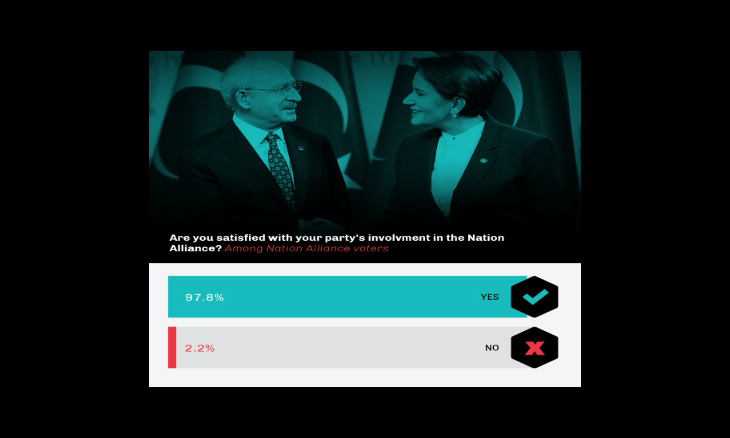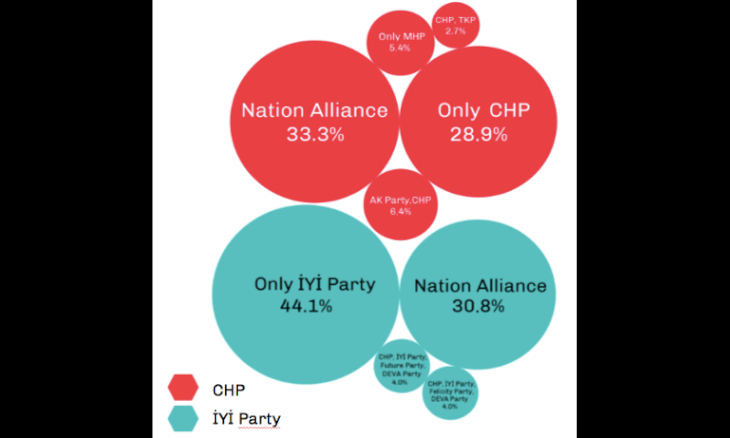How Turks pick their political side in Turkey?
The nature of the Nation’s Alliance has changed. It no longer represents a pre-election alliance formed by CHP, İYİ Party and Felicity Party like it did prior to the elections in 2018. Instead, it represents a political block against the People’s Alliance that can reach consensus on a common denominator.
For our August issue at TürkiyeRaporu.com, we conducted a survey measuring the satisfaction level of voters with regards to the current political alliances. In this article, I would like to discuss the results of our August survey in addition to a similar poll we had conducted earlier on in May.
Before discussing the results and analysis, I would like to clarify the difference between the terms “coalition” and “alliance.” While these terms are often used as synonyms, they carry different meanings. The difference lies in that alliances are constituted prior to elections, while coalitions are formed after them. Alliances mostly form due to ballot box metrics. On the other hand, coalitions arise as a result of negotiations regarding policies.

The first survey we conducted in August reveals that every voter for both alliances, the People’s and Nation’s alliances, are content with the respective alliances their parties partake in. But what is also noteworthy are the preferences of those voters who vote for political parties that aren’t involved in political alliances as of yet.
When asked which alliance they would like their preferred party to take part in, a majority out of this group of voters opted for the Nation’s Alliance, with 66.2%. Moreover, only 1.2% of them preferred the People’s Alliance. HDP voters undoubtedly play an important in these results. Still, one must not forget the contributions of DEVA and Future Party voters that recently entered the political arena.

Yet the poll we conducted in May reveals some difference in opinion. In May, we asked our survey participants what their ideal political alliance would look like. The results revealed that MHP voters were happier with the People’s Alliance than AK Party voters. This is rather unsurprising.
After MHP opted to switch its position and strike an alliance with the AKP back in 2017, many MHP supporters began supporting Meral Akşener’s İYİ Party and MHP made up for that loss with disgruntled AKP voters.
On the other hand, 43.2% of AKP voters would rather like to see their party govern alone. The reverse applies to the opposition alliance. CHP voters, which make up the largest bloc in the opposition alliance, are more inclined to take part in an alliance with İYİ Party than İYİ Party voters. Finally, an overwhelming majority of HDP voters do not wish to see their party take part in any alliance.
It is noteworthy that 7.7% of HDP voters would consider an alliance with CHP whereas the same cannot be said amongst CHP voters.
Ideally, which parties do you think should form an alliance?
These results show that the new parties stand a chance in the political competition if they take part in the opposition Nation’s Alliance. Yet one must not forget that the nature of the Nation’s Alliance has changed. It no longer represents a pre-election alliance formed by CHP, İYİ Party and Felicity Party like it did prior to the elections in 2018. Instead, it represents a political block against the People’s Alliance that can reach consensus on a common denominator.

The term “alliance of democracy” that CHP leader Kemal Kılıçdaroğlu coined is an apt way of describing that common denominator.
As 2023 nears, pundits and commentators will be discussing political alliances more and more. I believe that should be welcomed. Turkish society is diverse and marked by many different political demands. So far, large parties have not been successful in aggregating demand under their roof to capture that diversity. The AKP party had succeeded in that regard for a while, though it seems like it can no longer absorb the entire right-wing electorate. In the future, Turkey will need to redesign its parliamentary system and pave the way for transparent and accountable coalitions. For better or worse, political coalitions did deliver for Turkey in the past. It is the only way to bypass identity politics and tackle national issues.

